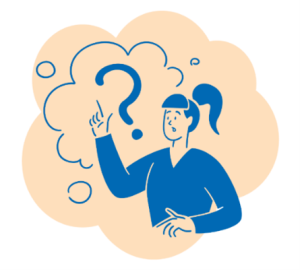Get in touch
To speak to someone about this information, contact our physical health team.
Phone: 0191 333 3584

What is a urinary tract infection (UTI)?
Urinary tract infections (UTIs) are common infections that can affect the bladder, kidneys and the tubes connected to them.
Anyone can get them, but they’re particularly common in women – with some women experiencing them regularly (recurrent UTIs).
UTIs can be painful and uncomfortable, but usually pass within a few days.
They can be treated with antibiotics if needed.
Signs and symptoms of a UTI?
- a need to pee more often than usual
- pain or discomfort when peeing
- sudden urges to pee
- feeling as though you’re unable to empty your bladder fully
- pain low down in your tummy
- urine that’s cloudy, foul-smelling or contains blood
- feeling generally unwell, achy, and tired
- a high temperature (fever) of 38c or above
- pain in your sides or back
- shivering and chills
- feeling and being sick
- confusion
- agitation or restlessness
How is a UTI treated?
UTIs can be treated with a short course of antibiotics. If you are experiencing more serious symptoms, a longer course can be admitted.
You can take medication such as paracetamol for the pain and you should drink plenty of fluids.
Treatment for a UTI is only required if the person has UTI symptoms.
Causes of UTI?
Sometimes no reason for a UTI can be identified, but most urinary tract infections are caused by bacteria from the bowel entering the urinary tract via the urethra. This can occur when wiping your bottom, by having sex, or sometimes no reason can be identified.
The following things can also increase the risk of UTI:
- pregnancy
- conditions that block the urinary tract (such as kidney stones)
- conditions making it difficult to empty the bladder
- urinary catheters
- weakened immune system
- not drinking enough fluids
- not keeping the genital area clean and dry
- using a contraceptive diaphragm or condoms coated in spermicide
Do
- wipe from front to back when you go to the toilet
- keep your genital area clean
- drink plenty of fluids, particularly water
- wash the skin around the vagina with water before and after sex
- pee as soon as possible after sex
- change nappies/incontinence pads as soon as possible when soiled
- wash your hands after using the toilet
Don’t
- use scented soap
- hold your pee in if you feel the urge to go
- rush while peeing – try to empty your bladder
- wear tight, synthetic underwear
- drink lots of alcoholic drinks, they may irritate the bladder
- have lots of sugary food or drinks- it can encourage bacteria to grow
- use condoms, diaphragm, or a cap
Where can I get further information?
During your hospital stay if you require further information, please ask the ward staff or the infection prevention and control team.
L1180, v1 24/05/2023 (archive 24/05/26)